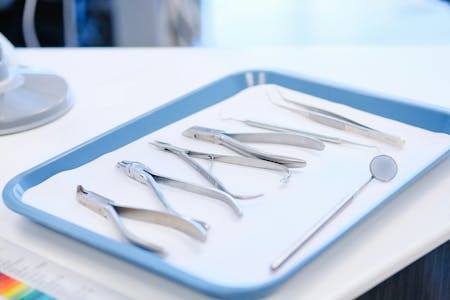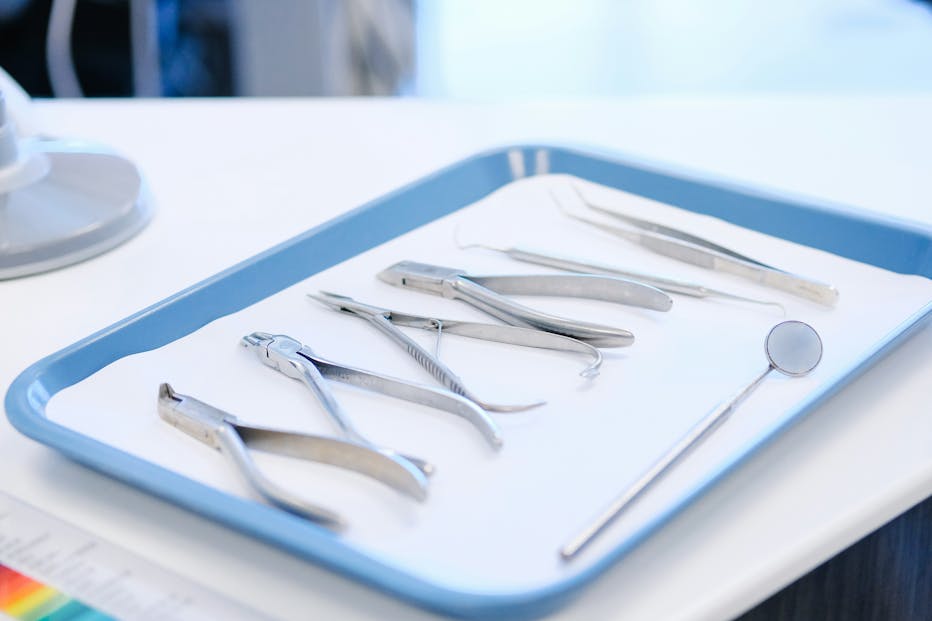A guide to dental plaque
Dental plaque is a ubiquitous problem that affects almost everyone, regardless of age or lifestyle. But what exactly is plaque and why is it so harmful to your dental health? In this in-depth blog post, you'll learn everything you need to know about plaque formation, the risks associated with it and the most effective ways to combat it.



What is dental plaque?
Dental plaque, also known as plaque, is a sticky, colourless or yellowish substance that forms continuously on the surface of the teeth. This plaque is caused by the interaction of food debris, saliva enzymes and bacteria in your mouth. The bacterial plaque feeds on the proteins and sugar residues in your food and produces acids that can attack the tooth enamel. This process not only leads to tooth decay, but also to gum inflammation such as gingivitis and, in worse cases, periodontitis.
How does dental plaque form?
Every time you eat or drink, food and drinks leave small particles on your teeth. Bacteria in the mouth use these food particles as a source of energy and produce acids that attack the tooth enamel. If plaque is not removed regularly by thorough brushing, it can mineralise and turn into tartar, a harder, even more damaging plaque that can only be effectively removed by professional teeth cleaning.
The risks of untreated dental plaque
Untreated dental plaque poses a serious threat to dental health. The risks of neglecting this soft dental plaque can have a profound impact on your oral health and lead to a range of dental and oral diseases. Here's a detailed look at the potential dangers:
Tooth decay
Tooth decay is one of the most common consequences of untreated dental plaque. The bacteria contained in this bacterial plaque process the sugars from your food and produce acids. These acids attack the tooth enamel, leading to demineralisation and eventually the formation of small holes or cavities. If caries is not treated, it can reach deeper layers of the tooth and lead to pain, infection and even loss of the affected tooth. In dentistry, great importance is therefore attached to preventive measures to avoid the development of caries.
Gingivitis
Gingivitis marks the beginning of gum problems caused by plaque. The toxins released by the bacteria cause the immune system to react, resulting in swollen, red and often slightly bleeding gums. This condition is further exacerbated by the accumulation of plaque at the gum line. Gingivitis is usually reversible with good oral hygiene and professional cleaning. However, if left untreated, it can progress to more serious forms of gum disease.
Periodontitis
If gingivitis progresses, it can develop into periodontitis - a serious inflammation that affects not only the gums, but also the underlying tissue and bone that supports the teeth. Periodontitis often leads to gum pockets where further plaque and calculus can accumulate. This progressive disease can lead to gum recession, loosening of the teeth and ultimately tooth loss. In some cases, the damage caused by periodontitis can be so severe that dental implants or other dental prostheses are necessary to maintain function and aesthetics.
Bad breath
An often overlooked but commonplace symptom of dental plaque is bad breath or halitosis. The bacteria living in plaque produce sulphur compounds that can cause an unpleasant odour. Regular removal of plaque is essential to combat bad breath and keep the general oral flora healthy.
Preventing and combating dental plaque
You can protect yourself from dental plaque with these tips and tricks.
Brush your teeth regularly
Brushing your teeth daily is your first line of defence against plaque. It is recommended to brush your teeth thoroughly at least twice a day, ideally after every meal. Using a toothpaste with fluoride strengthens the enamel and reduces the formation of plaque. At ALPINE WHITE, we recommend our toothpastes that target plaque removal and provide additional protection against tooth decay. Especially our Whitening Toothpaste Anti Plaque.
Use of dental floss
Flossing is essential to clean the areas between the teeth where plaque can build up and lead to gum problems. Daily flossing removes plaque and food debris that your toothbrush can't reach.
Mouthwashes
Antibacterial mouthwashes can help reduce the amount of bacteria in your mouth and slow the growth of plaque. However, they should not be used as a substitute for brushing or flossing.
Nutrition
Reduce your consumption of sugary and starchy foods that promote plaque formation. Hard, crunchy fruit and vegetables, such as apples and carrots, can help to remove plaque naturally as they are chewed.
Professional teeth cleaning with ALPINE WHITE
ALPINE WHITE offers professional teeth cleaning with the innovative AIRFLOW technology for effective plaque removal. This method uses a jet of water mixed with air and a fine powder to effectively and gently remove plaque, discolouration and tartar from the teeth. This treatment is particularly effective in removing even the most stubborn plaque and keeping the gums healthy.


For a healthy mouth and beautiful teeth, regular professional teeth cleaning is essential. Our specialists detect early signs of caries and prevent them.
- Personalised dental hygiene
- Gum check & caries control
- Painless cleaning with AIRFLOW
Bacteria analysis at ALPINE WHITE
One of the special services we offer at ALPINE WHITE is bacterial analysis. This innovative method makes it possible to analyse the specific composition of the bacterial flora in your mouth. In doing so, we identify harmful germs that can cause inflammation such as periodontitis. This analysis helps us to develop customised treatments and oral hygiene routines that are specifically tailored to your needs.
FAQ
How do I recognise dental plaque?
Plaque can be difficult to see at first as it is often colourless. Regular check-ups at the ALPINE WHITE Studio can help to recognise and remove plaque before it causes serious problems.
Can plaque cause permanent damage?
Yes, if plaque is not removed, it can cause permanent damage to the enamel and gums, which can ultimately lead to tooth loss.
How often should I go for a professional dental cleaning?
The frequency depends on your individual dental health. However, we recommend a professional cleaning at least once a year.
Conclusion
Combating dental plaque is an essential part of dental care. Through regular brushing, flossing, professional dental cleanings and a healthy diet, you can keep your teeth and gums healthy and avoid serious dental disease. Remember that dental care is a lifelong commitment that starts with daily diligence. Prioritise your oral hygiene to maintain a bright smile.


